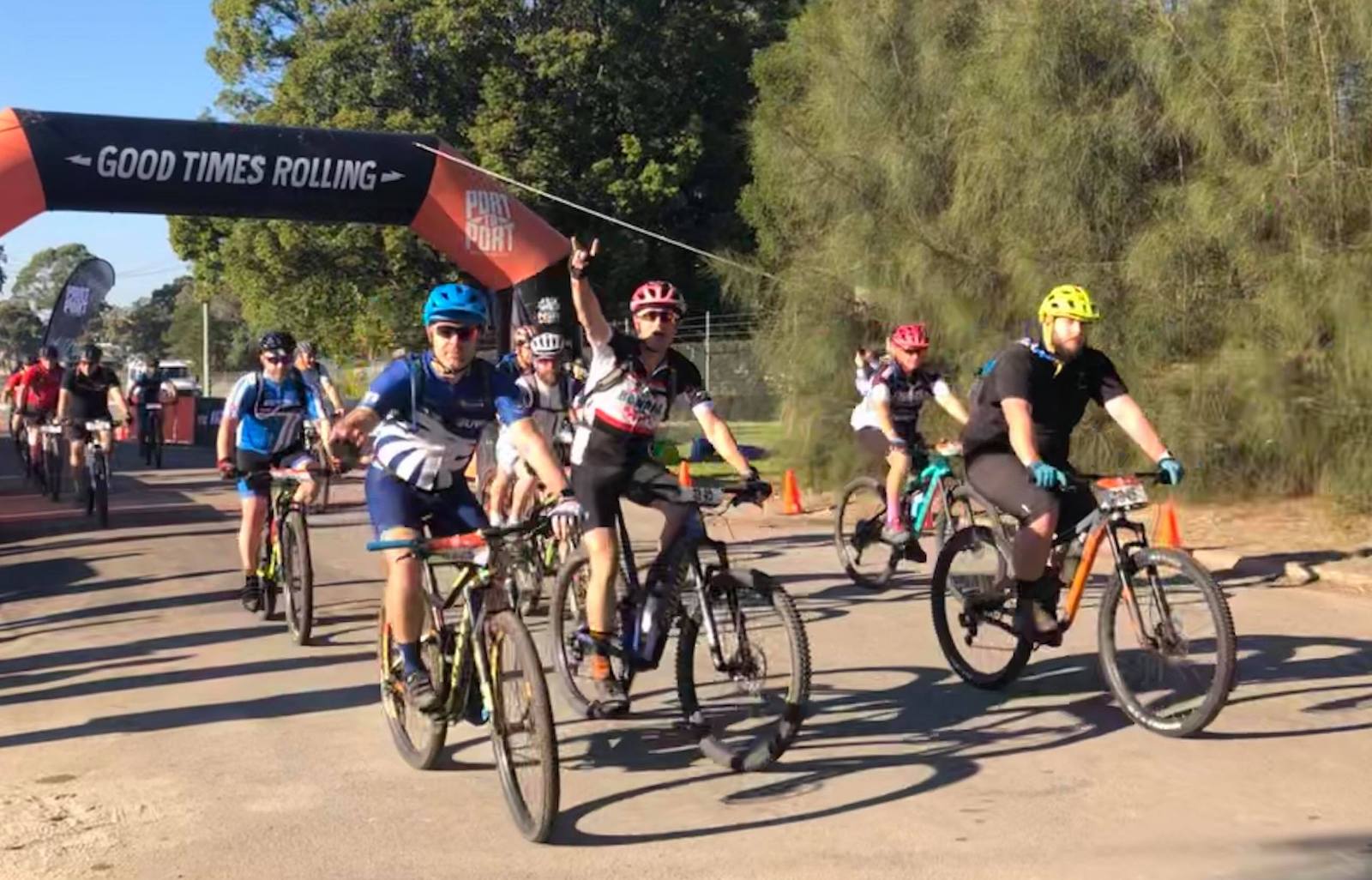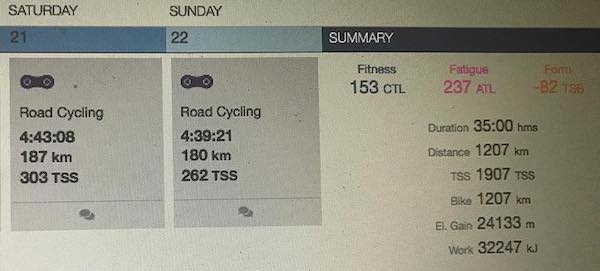A couple of months ago, I got a call from my mate, Stu, asking me if I wanted to do the Port to Port MTB Race. When I’d bought my MTB in advance of the move to Brisbane, I’d looked around for some events and this had grabbed my eye, but I’d put it down for next year as I hadn’t been riding much. However, Gareth had suggested it to Stu, who suggested it to me, so with two mates keen it was an easy decision to do it this year, despite the lack of training.
Last week saw me fly down to Newcastle to meet up with the guys for my first MTB event. I was underprepared, but the rough outline was that Stu was the fittest but with the least MTB experience, Gareth had the most MTB experience, having ridden the Scott 24hr many years ago, but possibly the least endurance, and I was somewhere in between. We had four stages to ride, with varying amounts of single track, and we had to maintain 10-12km/h average pace. On my local singeltrack I was getting 13km/h, but that was at a pace that I couldn’t sustain for four hours, so there was some apprehension about how thing would pan out.

Day 1
This looked like the easiest stage on paper. 48km of minimal single track, so the pace should be fine. One large climb near the start, then a rolling out-and-back course before the descent to the finish. Oh how wrong we were! The climb was on a steep, rocky 4WD road, so the pace was super slow. As expected, Stu was quickest up the climb, being able to stop to answer work emails while waiting for us! Once we had the main climb out of the way, we were faced with more rollers with a bias towards climbing, a brief bit of singletrack before a technical descent just after half way. The climb back out was ridiculously steep, with most people walking significant parts of it. Not what I was hoping for and I was getting annoyed. We finally made the top and looked forward to some descending back to the start, but things rapidly went wrong as Stu crashed hard as his front wheel washed out on a descent.

That was race over for him, with a 4WD ambulance coming to take him off the mountain. Eventual diagnosis was a broken shoulder blade and a few scrapes. Thankfully nothing more serious. Myself and Gareth continued on after the ambulance had left, but the downhills weren’t as plentiful as we’d hoped, there were a few more hard uphills requiring more walking and we eventually crossed the finish a man down and completely wrecked. Between Stu’s crash and the stage being way harder than anticipated, we weren’t off to a great start.
Day 2
Lots of singletrack on the second stage, so we were really looking forward to it. Stu had checked himself out of hospital and got an Uber to the start to have a pre-race coffee with us. We were so slow yesterday we’d been added to the final group to start, which didn’t really bother us as we had extra time to get organised in the morning. We’d had a 45min wait after Stu’s crash the day before, which the organisers had subtracted from our overall finish time, but we hadn’t asked them to change our start group. As it turned out, this meant we’d be riding the singletrack with all the slow and inexperienced people, so it took a while to get through the traffic and to be able to ride without interruption. This was definitely the highlight of the event, with almost the full 46km being singletrack, starting with the Killingworth trails and finishing off on the Holmesville network. Another four hours in the saddle, but chalk and cheese compared to yesterday.

Day 3
The longest stage of the race, coming in at 58km, with another huge climb to face. After about 8km of farm tracks we got to the Awaba trail network for some more fantastic singletrack. Fun trails which are really well looked after put smiles on faces and got everyone in a good mood to tackle the 5km climb immediately afterwards. I was slightly quicker than Gareth, so I’d ride a kilometre, stop and wait for him and repeat. Although the claimed gradient was 8%, it felt steeper than that and it was a long slog to the water station at the top. After a quick refuel we took off on the rollers across the top, with 17km to go before the second water station and the long descent to the finish. It quickly became apparent that Gareth was struggling, with his stomach staging a revolt, so we had no choice but to slow down to a sustainable pace.
We made the second water station only to be told we were too slow and would be diverted to a shorter finish, so the fun downhill section got replaced with a fairly normal road ride back to the start. Not much we could do about it - part of the challenge of these events is being able to eat and exercise at the same time and sometimes your stomach just gives up.
Day 4
The final day, the shortest at 40km and also a point-to-point stage meaning we’d have to do some car shuffling. Stu waved us off in the morning as he was heading back to Sydney, and Gareth’s partner, Kirsten, got roped in to meet us at the finish. This was another day of mainly singletrack with some nice trails around Whitebridge to start off and the well-known Glenrock trails to finish. Whitebridge was enjoyable, but again, we were constantly getting held up behind riders who were forced to stop at anything technical. Glenrock was OK. I suspect we were sent down some of the easier trails as the organisers figured everyone would be exhausted and prone to mistakes after four hard days. Once off the trails it was a quick road downhill and across the finish line at Dixon Park Beach to a well-deserved burger and beer!

Summary
Overall a really enjoyable event and well run. Trails were very well signposted, so it was always clear where you should be going. I’d definitely do more training before doing another one as you definitely work harder on the MTB than you do on the road. I was pretty shattered but he end of it, despite being able to ride at my own pace all the time. Looking forward to the next one!




